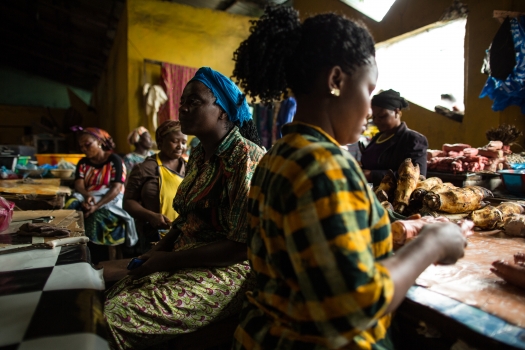By Phin Upham
In 2014, an outbreak of Ebola spread throughout West Africa, creating a global panic and taking the lives of more than 3,000 people. The images were horrible, the stories even more tragic. The fallout was felt globally. Africa was on the verge of growing, and had been doing so at a rapid pace for roughly the last decade. Innovations in payment processing, technology and factory work have led to an explosive growth of wealth in the country, with Liberia’s GDP ranked sixth among the world’s top 10 for GDP growth. What happened may provide a valuable path forward, and an important life lesson.
Mobility
If a country has a deadly disease, other countries don’t want it within their borders. West African countries largely self-imposed a quarantine, but other countries soon followed with reduced travel. That affects both internal and regional trade. Because it was difficult for goods to move, commerce slowed a great deal (by 25-75% by some estimates).
Food Production
Because of the outbreak, people were very much in fear for their lives. That tends to reduce production, especially in the food sectors. Reduced activity, either from sickness or fear, hit the staple crops of West Africa hard. In Liberia, some estimates say that the price of a staple crop has nearly doubled. Inflation in Liberia doubled within a year of the crisis.
Challenges Ahead
West Africa has several difficulties it must overcome to get back on its feet. It faces healthcare infrastructure that is in decay, and security challenges throughout the region. The government will need to increase spending as a result. With the decline in GDP, West Africa has a difficult road ahead.
About the Author: Phin Uphamis an investor at a family office/ hedgefund, where he focuses on special situation illiquid investing. Before this position, Phin Upham was working at Morgan Stanley in the Media and Telecom group. You may contact Phin on his Phin Upham website or Twitter page.

